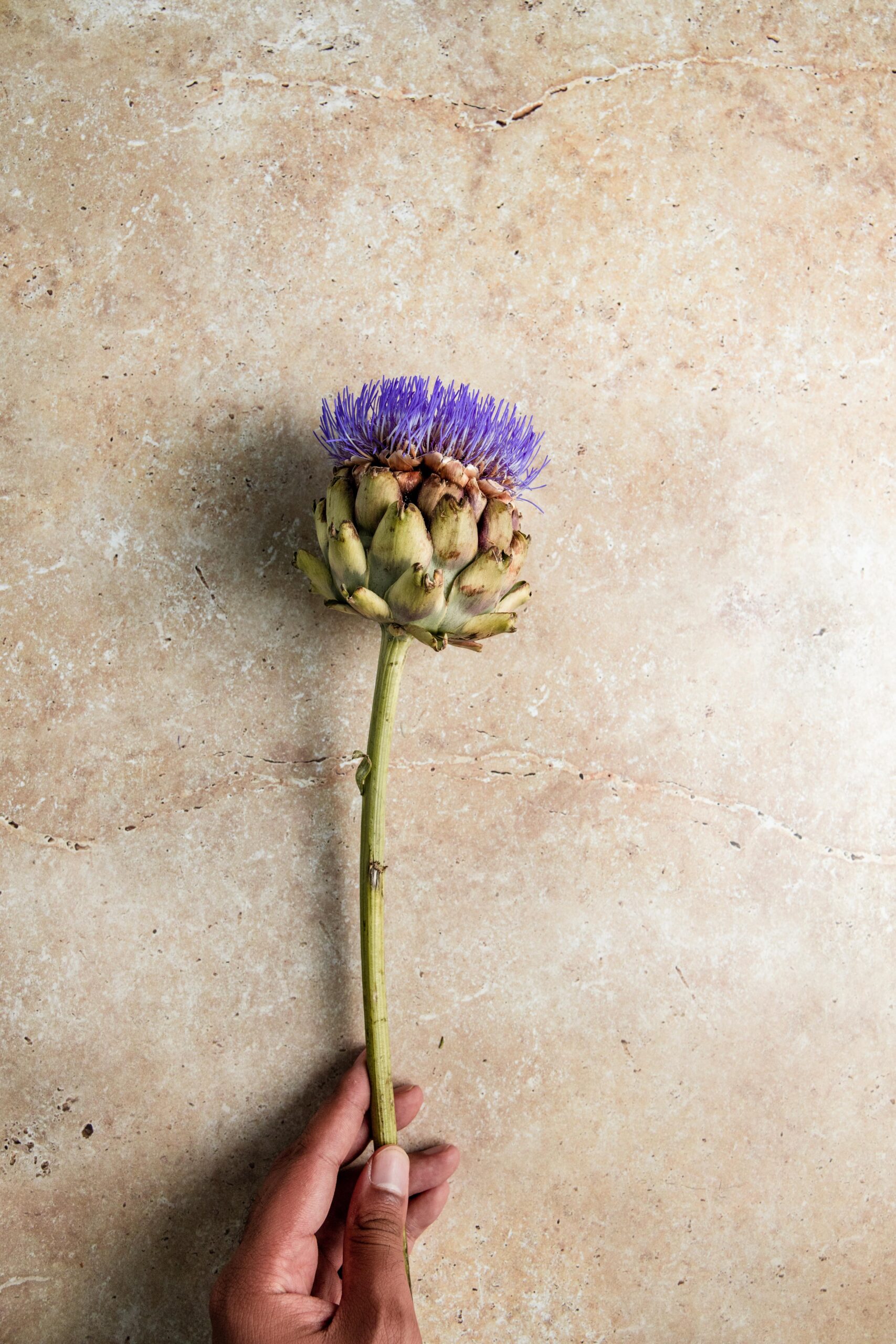
Gut Loving Foods
With all this talk about the importance of gut health, what does that ACTUALLY mean in terms of food that we should be eating?
A healthy and happy microbiome likes a variety of the following food groups:
- Fibre
- Probiotics
- Prebiotics
- Polyphenols
These are our best tools to promote a flourishing microbiome, and to prevent digestive concerns from occurring. If prebiotic and probiotic foods are new to you, start slowly and build your way up, as they will cause gas.
FIBRE
Fibre is the part of plant-based food that mostly passes through your digestive system without breaking down or being digested. It directly influences our microbiome and enhances the production of short-chain fatty acids (SCFAs), which helps to promote our overall health and wellbeing. There are two types of fibre, soluble & insoluble, and most plants contain a mix of both.
The recommended fibre intake is 25g/d for women & 30g/d for men.
Fibre is found in all vegetables, fruits, legumes, grains, nuts & seeds. The below foods contain high amounts:
- Vegetables: beetroot, eggplant, broccoli, carrots, brussels sprouts, kale, artichoke, sweet potato
- Fruit: avocado, kiwi, pears, raspberries, bananas, apples
- Legumes: Lentils, beans, soybeans, chickpeas, split peas, edamame
- Grains & pseudo grains: oats, barley, quinoa & most other whole grains
- Nuts & seeds: almonds, sesame, flaxseed, chia, sunflower seeds
Supplement alternatives are:
- Oat bran
- Rice bran
- Psyllium husks
An example of 30g of fibre in a day:
- ½ cup dry steel cut oats = 8g
- 30g sunflower seeds = 2.5
- 1 medium pear = 5.5
- ½ cup raspberries = 4g
- ½ cup black beans = 8g
- 1 cup raw broccoli = 2g
PROBIOTICS
Probiotics are live bacteria found in certain foods or supplements that promote a healthy environment as they pass through the digestive tract.
Probiotic rich foods include:
- Naturally pickled sauerkraut, pickled vegetables, kimchi
- Kefir (fermented milk, ideally goat or sheep, unsweetened)
- Miso, tamari, tempeh, fermented tofu, naturally fermented soy sauce
- Unpasteurised apple cider vinegar
- Coconut yoghurt (unsweetened)
- Natural yogurt (ideally goat or sheep, unsweetened)
There are masses of probiotic supplements on the market. The key is to find one that contains a strain to suit your needs. For overall gut health, the following strains may be beneficial:
- Lactobacillus rhamnosus
- Lactobacillus casei
- Lactobacillus plantarum
- Lactobacillus acidophilus
- Bifidobacterium animalis spp
- Bifidobacterium breve
- Bifidobacterium longum
- Saccharomyces cerevisiae (boulardii)
PREBIOTICS
Prebiotics are non-digestible foods that stimulate the growth of bacteria in the large intestine as they ferment it down.
Prebiotic rich foods can be broken down into categories, and include:
- Resistant starch: cooked & cooled starch such as potato, sweet potato or rice
- Inulin: garlic, leeks, asparagus, jerusalem artichoke, chicory root
- Pectin: apples, pears, plums, citrus
- Fructooligosaccharides: garlic, leeks, asparagus, jerusalem artichoke, chicory root
- Galactooligosaccharides: legumes, cashews, pistachios, freekeh
Supplement alternatives are:
- Inulin powder
- Fructo-oligosaccharides (FOS) powder
- Galacto-oligosaccharides (GOS) powder
- Partially hydrolysed guar gum (PHGG) powder
Prebiotics will cause gas, therefore it’s advised to start at a low dose, and work your way up!
POLYPHENOLS
Polyphenols are a type of prebiotic, but get a special mention due to their anti inflammatory and antioxidant properties. They also produce less gas than other prebiotics, so are a great option for bloated or sensitive bellies.
Polyphenols rich foods include:
- Fruits: Black elderberries, black currants, blueberries, cherries, strawberries, blackberries, plums, raspberries, red apples, black grapes
- Vegetables: Purple carrots, red carrots, orange carrots, purple/red potatoes, red cabbage, spinach, red onions, broccoli, red lettuce
- Nuts & Seeds: Flaxseed, chestnuts, hazelnuts, pecans, black tahini
- Grains: Red rice, black rice, red quinoa, black quinoa
- Other: Black olives, olive oil
Supplement alternatives are:
- Blackcurrant powder
- Blueberry power
- Mixed berry powder
If you are experiencing digestive symptoms and would like individualised support, please get in touch by booking in a Base Chat or Simplify Session here.
Brooke is a qualified naturopath with a focus on digestive health, hormones, and adrenal conditions.
Author
Brooke Schiller, BHSc Nat & Nut, BCom
Learn more about Brooke here
Book a session with Brooke here
References
https://www.ncbi.nlm.nih.gov/pmc/articles/PMC7589116/





